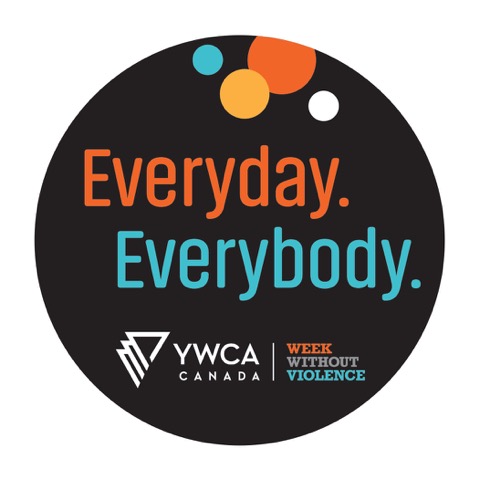
YWCA Week Without Violence: 20 Years of Fighting Violence Against Women
 2016 marks the 20th anniversary of YWCA Week Without Violence in what has been a watershed year for the topic.
2016 marks the 20th anniversary of YWCA Week Without Violence in what has been a watershed year for the topic.
The sexual assault cases of Jian Ghomeshi and Bill Cosby garnered coverage across North America and sparked national conversations about the challenges survivors who come forward face. Then there’s Republican Presidential candidate Donald Trump, who is not only downplaying comments he made about sexual assault as “locker room talk”, but is also publicly shaming the alleged survivors for coming forward.
These stories highlight biases against survivors, which are engrained in our legal system and culture. The myth of the ‘perfect victim’ was the focus of YWCA Metro Vancouver’s Annual General Meeting this year – you can read my re-cap about it here.
To commemorate the 20th anniversary of Week Without Violence, YWCA Metro Vancouver is partnering with YWCAs across the country to raise awareness at a local and national level, with the ultimate goal of ending violence against women.
YWCA Week Without Violence runs October 17-23 with different themes across the country, including:
- Intersectionality
- Cyberviolence – YWCA Canada
- Being more than just a bystander – YWCA Montreal
- Self care – YWCA Lethbridge
- Sexualization of women and girls – YWCA Metro Vancouver
Why the focus on sexualization this year? Chantelle Krish, Associate Director of Communications and Advocacy at YWCA Metro Vancouver explains:
“Sexualization of girls and hyper-masculinization of boys plays directly into creating a culture of violence against women because it establishes a system of gender inequality. Strong and healthy relationships can’t be formed under these unrealistic stereotypes for both women and men.”
On a personal level, I’m passionate about this topic because I’ve seen firsthand the focus on girls’ appearance starting at an early age. All you have to do is stroll through the mall and you’ll see girls wearing t-shirts emblazoned with words like “pretty” and “runway ready” while boys don words like “adventurer” and “athlete” on their clothing.
However, I have noticed that people are starting to pay attention and speak up. Take the recent online debate sparked by stark differences between Girls’ Life Magazine and Boys’ Life Magazine covers. The Girls’ Life cover promoted “waking up pretty”, whereas the Boys’ Life cover focused on “exploring your future” – the obvious gender disparity was called out by parents on social media after screenshots of the covers side by side went viral.
You might be wondering what can be done to end the sexualization of women and girls? In Vancouver, the YWCA Culture Shift Project takes a systemic approach, through research and public engagement, to shift environments that perpetuate the sexualization of women and girls and contribute to violence against women. Research will come out later this fall and you can stay up to date on this exciting project by liking our Facebook Page.
YWCA Canada’s Strong Girls, Strong World, which supports ten projects led by women and girls across Canada, empowers young women and girls to become leaders in their communities. The YWCA Metro Vancouver Strong Girls, Strong World youth advisory council focuses on media literacy as a response to sexualization. The council will host a youth conference on media literacy later this fall, where young people will deconstruct harmful media messages and learn about healthy relationships, gender binary and positive online behaviour.
There are other ways you can help too – both big and small, to end sexualization and make our communities safer. Krish suggests volunteering, being more than a bystander or supporting programs similar to Strong Girls, Strong World. Or, simply join the conversation about Week Without Violence on Twitter and Facebook. These conversations matter because public opinion shapes policy and behaviour.

